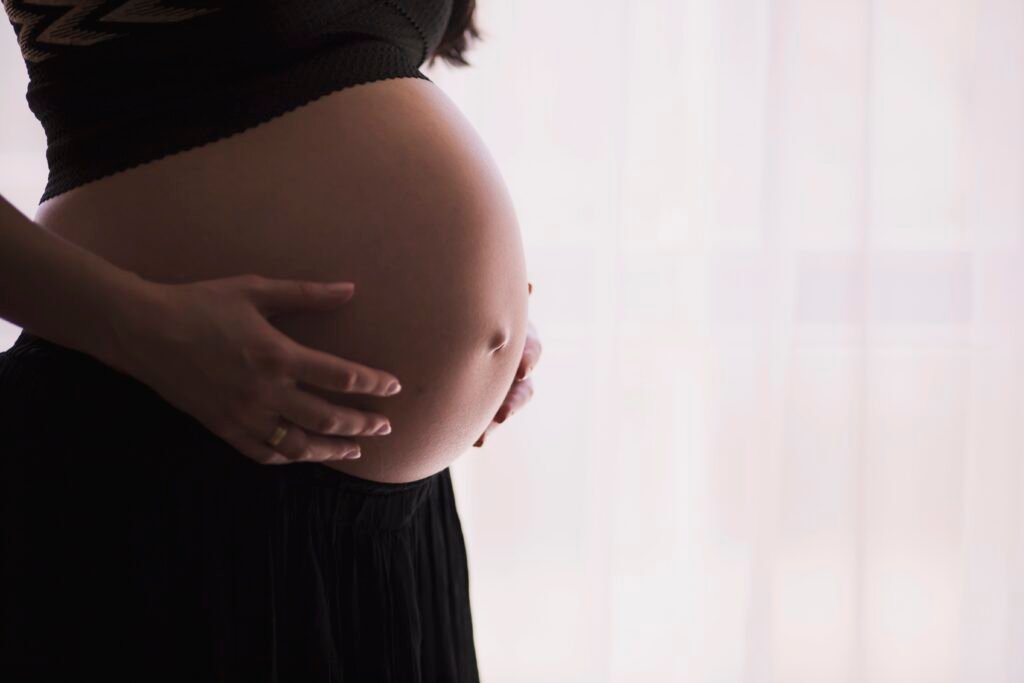So, you’re expecting a little bundle of joy and couldn’t be more excited! Pregnancy is an incredible journey, but it can also bring about unexpected challenges. One such challenge that pregnant women may face is the formation of kidney stones. Don’t worry, though! In this article, we’ll discuss some effective ways to prevent kidney stones during pregnancy, ensuring that you can enjoy this special time without any unnecessary discomfort or complications. Let’s dive in and explore all the useful tips and tricks that will keep those pesky kidney stones at bay!

This image is property of images.unsplash.com.
Understanding Kidney Stones
Kidney stones are small, hard mineral deposits that form in the kidneys. They can vary in size, from as small as a grain of sand to as large as a golf ball. These stones can develop when certain substances, such as calcium, oxalate, and uric acid, become concentrated in the urine and crystallize.
How do kidney stones form?
Kidney stones form when there is an imbalance in the urine composition, leading to the buildup of certain substances. This can occur when the urine is highly concentrated or lacks substances that prevent crystal formation. When these crystals grow and combine, they form kidney stones.
Types of kidney stones
There are several different types of kidney stones, each formed by different substances:
- Calcium stones: These are the most common type of kidney stones and are usually made of calcium oxalate or calcium phosphate.
- Uric acid stones: These stones develop when there is an excess of uric acid in the urine.
- Struvite stones: Struvite stones are typically caused by urinary tract infections and can grow rapidly.
- Cystine stones: These stones result from a hereditary disorder that causes an abnormal buildup of cystine in the urine.
Symptoms of kidney stones
When kidney stones move through the urinary tract, they can cause various symptoms, including:
- Severe pain in the back or side
- Blood in the urine
- Frequent urination
- Painful urination
- Cloudy or foul-smelling urine
- Nausea and vomiting

This image is property of images.unsplash.com.
Risk Factors for Kidney Stones in Pregnant Women
Pregnant women are at an increased risk of developing kidney stones due to various factors. These include:
Age and previous history
Advanced maternal age and a history of kidney stones can increase the risk of developing them during pregnancy. Women who have had kidney stones in the past are more likely to experience them again during pregnancy.
Dehydration and inadequate fluid intake
Pregnant women need to stay well-hydrated to support their own health and the development of the baby. Dehydration and inadequate fluid intake can contribute to the formation of kidney stones.
Dietary factors
Certain dietary factors, such as a high intake of salt, animal protein, and oxalate-rich foods, can increase the risk of kidney stone formation in pregnant women.
Family history
A family history of kidney stones can also predispose pregnant women to develop them.
Obesity and weight gain
Obesity and excessive weight gain during pregnancy can put additional stress on the kidneys and increase the risk of kidney stones.
Urinary tract abnormalities
Structural abnormalities in the urinary tract, such as kidney abnormalities or urinary tract infections, can increase the risk of kidney stone formation in pregnant women.
Importance of Kidney Stone Prevention during Pregnancy
Preventing kidney stones during pregnancy is crucial for the health and well-being of both the mother and the baby. Some of the potential complications of kidney stones during pregnancy include:
Potential complications for both mother and baby
Kidney stones can cause severe pain and discomfort for pregnant women, affecting their overall quality of life. In some cases, they may lead to complications such as urinary tract infections, kidney damage, or preterm labor.
Effect on fetal development
Kidney stones can impair maternal kidney function, which in turn can impact fetal development and growth. It is essential to maintain proper kidney function to ensure the health of the baby.
Increased risk of urinary tract infections
Kidney stones can increase the risk of urinary tract infections during pregnancy. These infections can be harmful to both the mother and the baby if left untreated.

This image is property of images.unsplash.com.
Lifestyle Changes for Kidney Stone Prevention
Making certain lifestyle changes can help prevent the formation of kidney stones during pregnancy. These include:
Maintaining proper hydration
Drinking an adequate amount of water throughout the day is crucial for preventing kidney stones. Aim to drink at least eight to ten glasses of water daily, or more if recommended by your healthcare provider.
Balanced diet and nutrition
Follow a balanced diet that includes fruits, vegetables, whole grains, and lean proteins. Limit your intake of high-sodium foods, processed foods, and foods high in oxalates, such as spinach and rhubarb.
Physical activity and exercise
Engage in regular physical activity and exercise, as it can aid in preventing kidney stones. Consult with your healthcare provider about suitable exercise options during pregnancy.
Avoiding excessive salt and sugar intake
High salt and sugar intake can contribute to kidney stone formation. Limit your consumption of processed foods, snacks, and sugary beverages.
Quitting smoking and alcohol consumption
Smoking and alcohol consumption can have detrimental effects on kidney health. Quitting smoking and avoiding alcohol during pregnancy is not only beneficial for preventing kidney stones but also for the overall well-being of the mother and the baby.
Safe Medications for Pregnant Women to Prevent Kidney Stones
When necessary, certain medications can be used to prevent kidney stones during pregnancy. These may include:
Calcium supplementation
Calcium supplements, prescribed under medical supervision, can help prevent the formation of calcium stones.
Citrate supplements
Supplements containing citrate, such as potassium citrate, can be prescribed to pregnant women at risk of developing certain types of kidney stones.
Low-dose antibiotics
In some cases, low-dose antibiotics may be prescribed to prevent urinary tract infections, which can increase the risk of kidney stone formation.
Other prescription medications if necessary
In specific instances, other prescription medications that are deemed safe during pregnancy may be recommended to prevent kidney stones. It is crucial to discuss any medication options with your healthcare provider.
Natural Remedies for Kidney Stone Prevention during Pregnancy
In addition to lifestyle changes and medications, some natural remedies can help prevent kidney stones during pregnancy. These include:
Increasing lemon or lime juice consumption
Drinking lemon or lime juice can increase citrate levels in the urine, which helps prevent the formation of certain types of kidney stones.
Incorporating apple cider vinegar
Apple cider vinegar may have a beneficial effect on kidney stone prevention due to its acidic properties. However, it is essential to consult with your healthcare provider before using it as a remedy.
Herbal teas and water infusions
Certain herbal teas, such as nettle leaf tea or dandelion root tea, may help with kidney stone prevention. Additionally, infusing water with ingredients like cucumber slices or fresh mint can enhance hydration and provide additional benefits.
Dietary modifications for specific stones
If you have previously had a specific type of kidney stone, your healthcare provider may recommend dietary modifications to prevent their recurrence. This may include avoiding certain foods or increasing the intake of specific nutrients.
Importance of Regular Follow-ups and Check-ups
Regular follow-ups and check-ups during pregnancy are essential for monitoring kidney stone risk and adjusting preventive measures if necessary. Your healthcare provider may recommend the following:
Monitoring kidney stone risk during prenatal visits
During prenatal visits, your healthcare provider will monitor your overall health, including kidney function, and assess your risk of developing kidney stones.
Urinalysis and imaging tests
Urinalysis and imaging tests, such as ultrasound or X-ray, may be performed to evaluate kidney function and detect the presence of kidney stones.
Adjusting preventive measures if necessary
Based on the results of urinalysis and imaging tests, your healthcare provider may make adjustments to your preventive measures or treatment plan to ensure optimal kidney health during pregnancy.
Dealing with Kidney Stones during Pregnancy
If you develop kidney stones during pregnancy, it is essential to manage the symptoms and seek appropriate medical care. Some strategies for dealing with kidney stones during pregnancy include:
Symptom management
Implementing measures to alleviate symptoms, such as pain management techniques and applying heat to the affected area, can help provide relief.
Pain relief options
Your healthcare provider may recommend safe pain relief options, such as acetaminophen, to alleviate the discomfort associated with kidney stones during pregnancy.
Potential need for medical interventions
In severe cases, medical interventions such as surgical removal or the use of additional medications may be necessary. Your healthcare provider will determine the appropriate course of action based on your specific situation.
Consulting a Healthcare Provider
If you are pregnant and concerned about kidney stone prevention, it is vital to seek professional medical advice. Your healthcare provider, including your obstetrician and urologist, can provide guidance tailored to your individual needs.
Seeking professional medical advice
Consult with your healthcare provider to discuss your specific risk factors and appropriate preventive measures based on your medical history and current pregnancy.
Collaborating with obstetrician and urologist
Working together with your obstetrician and urologist can ensure comprehensive care and management of kidney stone prevention during pregnancy. They can provide the necessary guidance, treatment options, and support throughout your pregnancy journey.
Conclusion
Taking proactive steps for kidney stone prevention during pregnancy is vital for the health and well-being of both the mother and the baby. By understanding the causes, symptoms, and risk factors associated with kidney stones, and implementing lifestyle changes, safe medications, and natural remedies, pregnant women can significantly reduce their risk of developing kidney stones. Regular check-ups and consultations with healthcare providers ensure optimal kidney health and allow for timely adjustments to preventive measures if necessary. By prioritizing kidney stone prevention, pregnant women can safeguard their own well-being and ensure a healthy future for their babies.

